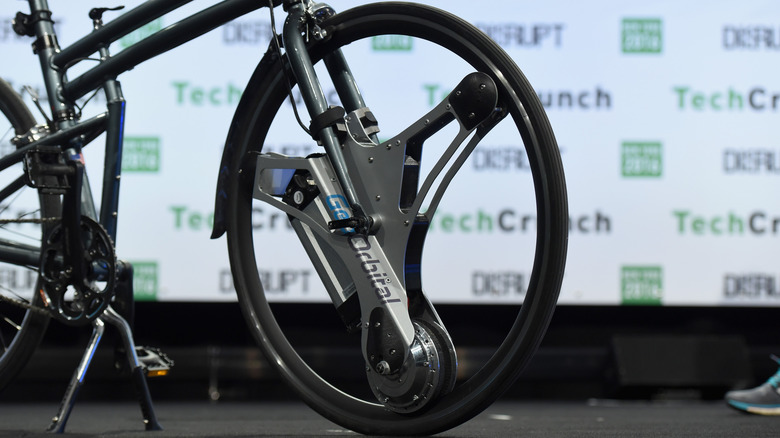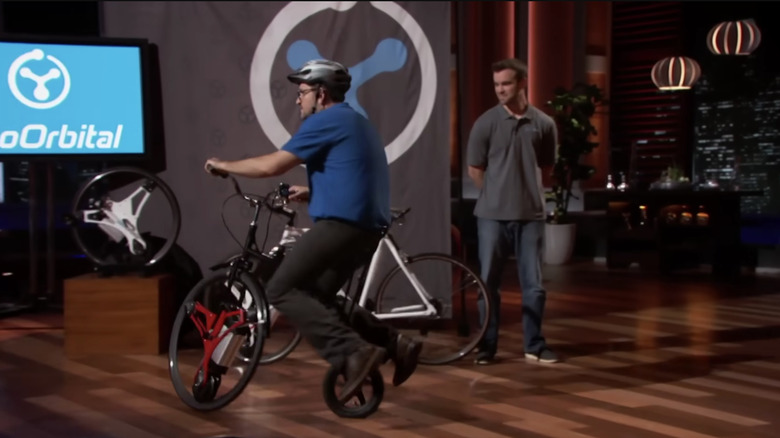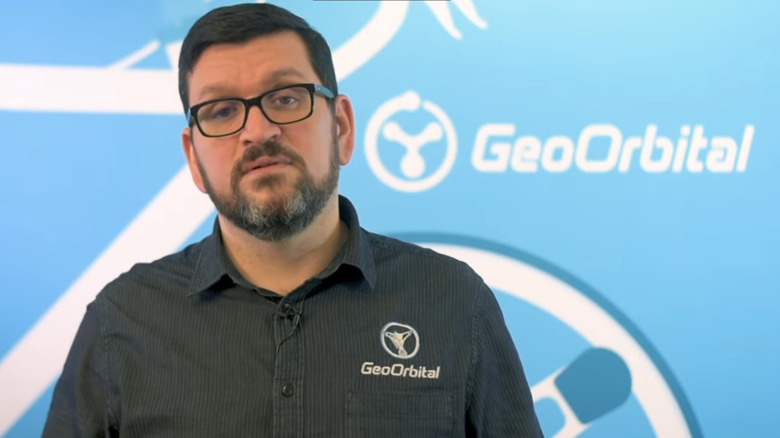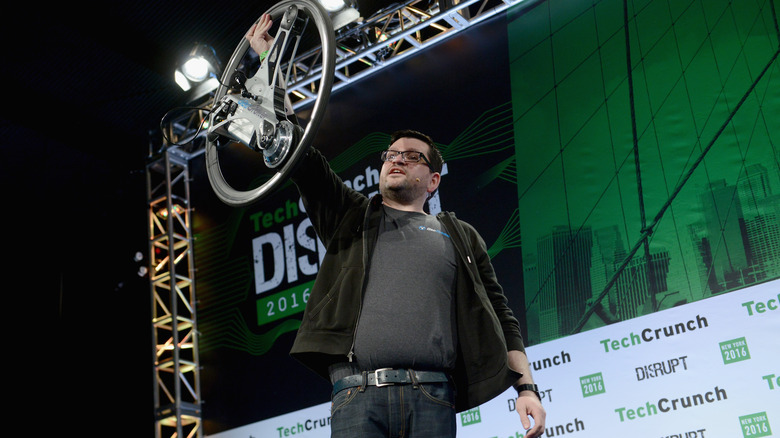What Happened To The GeoOrbital Wheel From Shark Tank Season 9?
On November 5, 2017, "Shark Tank" aired the seventh episode of its ninth season, and the most memorable product pitched that week was the GeoOrbital Wheel from Dakota Decker and Michael Burtov of Cambridge, Massachusetts. Though they also showed off a standalone option for $1,150, which Kevin and Barbara each purchased for themselves, their primary business was a $950 replacement wheel for standard bicycles that turned them into e-bikes.
Burtov told Dig Boston in 2015 that the idea was inspired by his watching the movie "Tron" and noticing that "all that space inside the 'orbital' wheel was wasted," so "why not put all sorts of components inside that empty space [and create a] wheel that doesn't spin around a hub, but orbits around a central mass."
Without any technological background, he needed help, which was where Decker came in as Chief Technology Officer. In the months leading up to their "Shark Tank" segment, GeoOrbital had raised over $1.26 million on Kickstarter, and according to an SEC filing, already had distribution with Best Buy.
How did GeoOrbital do on the show?
GeoOrbital's segment on "Shark Tank" began with a demonstration of how the wheel could be subbed in on a conventional bicycle in under 60 seconds, without the need for any tools. Kevin O'Leary and Barbara Corcoran volunteered to try out bikes that had been outfitted with the GeoOrbital Wheel and appeared to have fun with it. However the Sharks, after appearing impressed by the Kickstarter success, visibly got cold feet as they learned more about the product.
Barbara pointed out that you could easily find a standalone e-bike for under $950, and Decker conceded that they started under $500, but he stressed that the GeoOrbital made for a higher quality e-bike than you could get at the lowest available price points. Guest Shark Chris Sacca tried to ask if they were selling any standalone bikes, and they showed off a $1,150 miniature e-bike capable of making unusually tight turns.
However, when the GeoOrbital reps framed that bike as a side project, Chris opted out. Mark Cuban felt the bike space was too difficult given the distribution hurdles and opted out, as did Lori Greiner over the price point. Barbara and Kevin opted out over similar concerns, but were happy to each buy the standalone bike for themselves.
The valuation and investment that GeoOrbital asked for, $500,000 for 5%, never even came into the equation.
How did GeoOrbital do after Shark Tank?
This is where it can get confusing, as the episode was shot two months before the GeoOrbital Wheel started shipping, but aired several months after it became widely available. Professional reviews were out long before anyone ever saw it on Shark Tank. The Kickstarter's estimated delivery date of August 2016 gives you an idea of just how far in advance the episode was shot.
Regardless, whether it was the "Shark Tank effect," the existing coverage in tech and other enthusiast media, or both, the GeoOrbital Wheel had some momentum. Sales through Amazon and Best Buy augmented its direct-to-consumer order fulfillment.
GeoOrbital had used StartEngine to raise more capital in two separate rounds in 2017, and tried selling shares of common stock on Netcapital for four months in mid-2018. The company also launched a public safety division to try to sell police departments on converting bikes. For whatever reason, presumably due to the price point, the momentum wasn't there. Decker's LinkedIn page says he left for Kernel in July 2019, while later that year, GeoOrbital's social media pages ceased providing substantive updates.
Wayback Machine archives of the company's "Shop" page show that it went away during the height of the COVID-19 pandemic in 2020. The current website has no information about buying a new wheel, with the credit card logos present at the bottom of the page being the only reason you would think GeoOrbital ever got to selling the product.
What's next for GeoOrbital's founders?
As noted above, what happened to Decker is pretty simple: He moved on to work as Director of Manufacturing for Kernel, which specializes in neurological biotech. The company website claims that its Kernel Flow product "collects high-resolution data at the scale required for precision neuroscience."
With regards to Burtov, he maintains a slick-looking personal/professional website for his entrepreneurial work and startups. The website does list one other startup of his, though, Cangrade, which provides AI-based human resources solutions. Unlike the current state of GeoOrbital, this appears to actually be a functional company. His LinkedIn page, meanwhile, doesn't seem to include anything that would be occupying him full-time.
He's still listed as "Founder and CEO" of GeoOrbital, but the rest of the listed active positions include charity work, guest teaching positions, and other side gigs. While there doesn't appear to be any clear reason to treat GeoOrbital as a functioning company producing an actual product at the time of this writing, its status is officially a big question mark.



